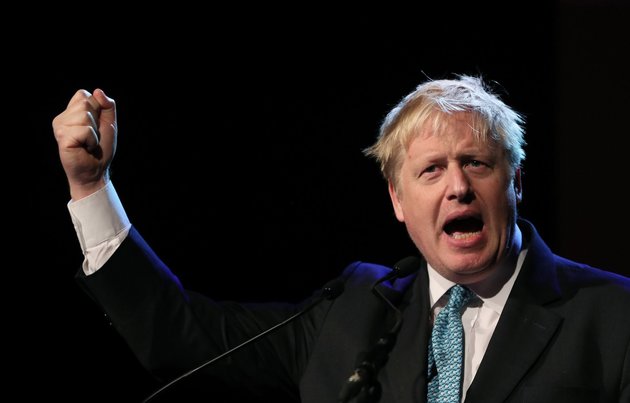British Prime Minister Boris Johnson expressed his readiness ... to "bail on" the EU after the transition talks. He made this bold statement at a meeting with business groups in Greenwich a month before negotiations with the EU.
Boris Johnson, addressing British entrepreneurs, said that signing a trade agreement with Brussels "does not mean" that London will accept EU standards of competition, subsidies, the environment or fisheries. "We will agree that the autonomy of our right-wing system will not be affected in any way. Following the example of Canada, Australia, whose economies are weakly connected with Europe and which have zero trade tariffs with the EU," eccentric Johnson announced.
The Old World will face even greater surprises when the Brexit transition period ends. Boris Johnson hopes to introduce stringent environmental standards in the UK, much strict than those existing in relation to the automotive industry in the continental Europe. The British prime minister plans to ban the sale of new petrol and diesel cars. The rule, he said, will not affect the domestic resale market - i.e. UK citizens will be able to sell their cars with any engine to each other, in accordance with applicable law. But after the transition period it will be possible to bring only electric vehicles to the island, or an even newer, more perfect vehicle in terms of environmental standards, when or if it appears.
The Brexit transition period is designed for an incomplete year and in order to avoid shocks the EU and Great Britain have to sign very detained agreements. So does it make sense if the British leader declares that he will act as he sees and evaluates the situation himself, proceeding from the UK interests?
Contrary to expectations, Brussels' reaction was rather phlegmatic. EU chief negotiator Michel Barnier, who recently claimed that Britain would pay dearly for Brexit, suddenly stated that Johnson’s zero-tariff idea was real. It seemed that only head of the European Commission Ursula von der Leyen was struck by Boris Johnson's "arrogant plans". She made a lapidary statement in which she noted that talks with London would be tough and clear, and that the interests of the EU and its citizens would not be affected.
Apparently, that's when you say this is diamond cutting diamond. But it seems that London has the initiative before the negotiations, and Johnson’s concessions, if any, will turn out to be a goodwill gesture and a guarantee of future constructive relations. At least because after the transition period, perhaps nothing will be able to prevent the UK from establishing standards that are not totally high, as Johnson says, but, on the contrary, in certain areas lower than those adopted in the EU. And it seems that it will be so, because London is negotiating with Washington on a free trade zone, and plans to harmonize its trade legislation with the American one, whose standards in a number of areas are significantly lower than European ones. This is bad for Europe because a number of its goods and services may be pushed out in its space by the British ones. That is, Britain, having left the EU, can launch a trade and economic attack on the continent.
The UK left the EU on February 1, 2020 after a 47-year EU membership. The exit from the EU was celebrated in London by fireworks, festive illumination and release of a 50p coin, which features the inscription 'peace, prosperity and friendship with all nations'. What are the changes?
The UK is no longer represented in the EU institutions and can no longer take part in decision-making. But until the end of this year, it lives in accordance with EU rules, as originally agreed.
London does not intend to require a visa from EU tourists. But citizens of the EU — about 3.5 million people — must register before the end of the year to be able to keep on living in the kingdom. However, the registration system is almost identical to the 2019 one, and only a few are refused, mainly due to conflicts with the law.
But next it's up to Boris Johnson and other representatives of the British government.
Pro-Brexit supporters believe that greater independence of the UK will create more jobs and stop the influx of migrants at the same time. It was these two circumstances that prompted them to vote for Brexit.
Opponents of leaving the EU, mainly young people, employees of high-tech companies, explain that now it is more promising to move from the UK to continental Europe - Germany or Holland, which they did not plan and "do not really want to." But this part of the population has lost.
The EU, of course, is not happy with the UK exit, which is the fifth largest economy in the world. But despite all the attempts, warnings and even mild threats, Brexit took place, and, according to David Henig, the UK trade expert from the European Centre for International Political Economy, cited as saying by the Financial Times, "it's going to be messy and unpredictable." Especially given Boris Johnson's plans to act exclusively in the interests of the kingdom and its subjects.








